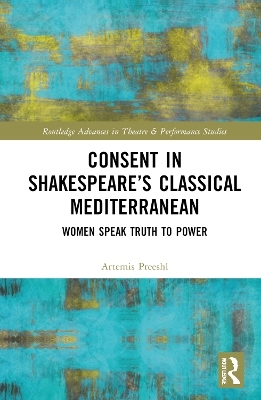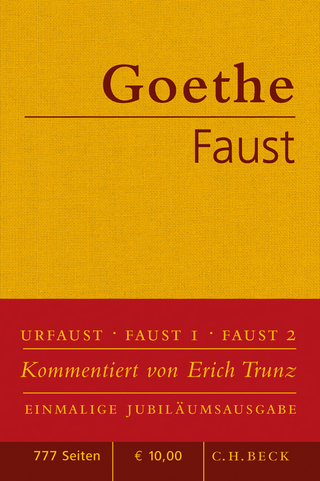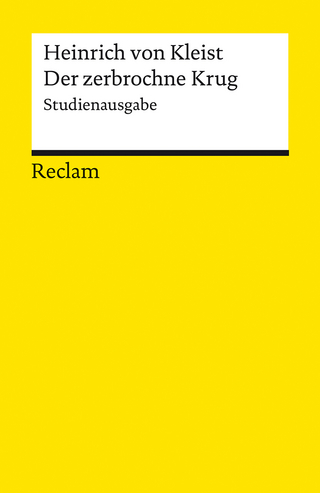
Consent in Shakespeare’s Classical Mediterranean
Routledge (Verlag)
978-1-032-74143-7 (ISBN)
- Noch nicht erschienen (ca. Februar 2025)
- Versandkostenfrei innerhalb Deutschlands
- Auch auf Rechnung
- Verfügbarkeit in der Filiale vor Ort prüfen
- Artikel merken
This classical sequel explores how female-identified and non-binary characters accessed agency in Shakespeare’s Mediterranean plays set in classical Troy, Athens, Thebes, Antioch, Ephesus, Mytilene, the North African Pentapolis, Tarsus, Egypt, Rome, Antium, Britain, Sardis, Philippi, Sicily, greater Bohemia, and the Balkan region. Through the lens of sources from Eastern and Western Europe, the Middle East, and the Maghrib, Shakespeare’s heroines and their supporters may have initially appeared to conform to Early Modern contexts, but the diverse backgrounds of female-identified and non-binary characters impacted the right to consent to friendship, affection, betrothal, and marriage in the classical Mediterranean. By focusing on perspective views about female-identified and non-binary in and around Eastern and Western Europe, the Middle East and the Maghreb, classical realities collide with Early Modern preconceptions and misconceptions to reveal commonalities and differences in the lived experiences of female-identified and non-binary royalty, nobility, servants, enslaved peoples, matchmakers, courtesans, sex workers, madams, herbalists, tailors, and merchants.
This study will be of great interest to students and scholars in Theatre, Middle East Studies, Asian Studies, Eastern European and Eurasian Studies, African and Maghrib Studies, and Social Justice Studies.
Artemis Preeshl is a Fulbright Senior Specialist in Theatre and professional director, actor, dialect and intimacy coach, and choreographer who has worked at Tulane University, Loyola University New Orleans, Elon University, the University of West Georgia, Utah State University, Buena Vista University, the Faculty of Creative and Artistic Technology at Universiti Teknologi MARA in Malaysia, and Kalakshetra Foundation, the University of Madras, and Central University of Tamil Nadu in India. She is the Director of the Center for Teaching, Innovation, and Research at Adams State University.
Foreword
Preface
Acknowledgements
Chapter 1: Permission ≠ Consent: Prisoners Exchanged, Affirmative Consent Unchanged in Troilus and Cressida
Chapter 2: Street Rules in Coriolanus: (S)mothering and Silenced Love in Coriolanus
Chapter 3: Ignoble Nobles: Consent in the Age of Pseudo-Chivalry in Two Noble Kinsmen
Chapter 4: Roofied Wood: Drugs and BDSM in Reacquired Patriarchy in The Dream
Chapter 5: Gold and Girls: Timon’s Murder by Sex in Athens
Chapter 6: Silenced Shades: Timing Revolt Against Oppression in The Winter’s Tale
Chapter 7: Losing to Win: The Peril of Virginity in Pericles, Prince of Tyre
Chapter 8: Private Discourse in Public Lives: Survival Equals Victory: Julius Caesar
Chapter 9: Othered Women: A Real Brat Out-Cleopatra’s Herself in Antony and Cleopatra
Chapter 10: Symbolic Freedom: The Anglo-Roman Demi-Transition in Cymbeline
Chapter 11: No Laughing MacGuffin: Domestic Violence in a Carnival of Errors
Chapter 12: Status Matters. Not!: The Inability of Ignobility in Titus Andronicus
Conclusion
Index
| Erscheint lt. Verlag | 24.2.2025 |
|---|---|
| Reihe/Serie | Routledge Advances in Theatre & Performance Studies |
| Verlagsort | London |
| Sprache | englisch |
| Maße | 156 x 234 mm |
| Themenwelt | Literatur ► Lyrik / Dramatik ► Dramatik / Theater |
| Kunst / Musik / Theater ► Theater / Ballett | |
| Geisteswissenschaften ► Sprach- / Literaturwissenschaft ► Anglistik / Amerikanistik | |
| Geisteswissenschaften ► Sprach- / Literaturwissenschaft ► Literaturwissenschaft | |
| ISBN-10 | 1-032-74143-0 / 1032741430 |
| ISBN-13 | 978-1-032-74143-7 / 9781032741437 |
| Zustand | Neuware |
| Haben Sie eine Frage zum Produkt? |
aus dem Bereich


